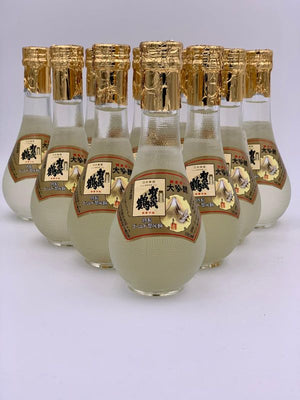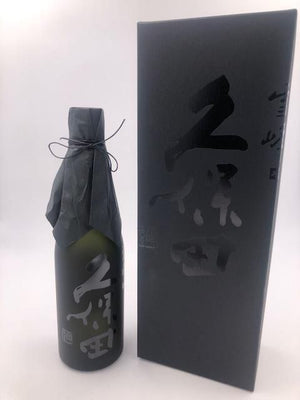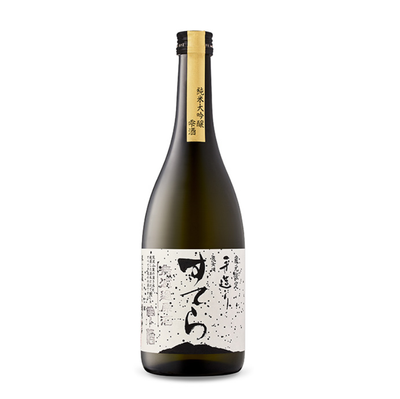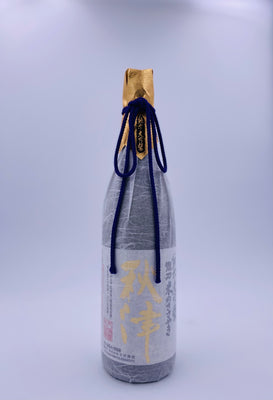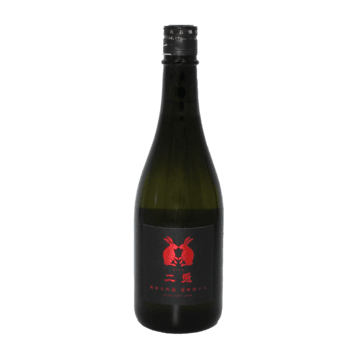
The heirloom varietal Junmai Daiginjo polished to 48%; this is aromatically profound and clearly the more complex and richer Sake of the range. Though this is a touch sweeter, about the sweetness of steamed rice, it has impressive acidity that brings vibrancy and balance, finishing relatively dry with a kiss of spice. This also has an excellent savory note, showing a fantastic level of umami along with some nice fruity and floral undertones that mesh perfectly. The Omachi is the perfect example of "Catching both Hares," as the Brewery calls it, showing modern polish and refinement with traditional complexity, umami, and richness.
This old, small brewery dates back to 1690, and today is operated by just four people that continue the legacy of this little landmark address. 'Nito' is from an old Japanese proverb "Run after two rabbits, you'll catch neither." Hideki Fukada, president of Maruishi, believes that he has caught both hares, producing Sake that beautifully reflects highly prized craftsmanship alongside qualities such as taste, aroma, acidity, and umami levels to find the perfect balance between tradition and a modern vision of Sake. Maruishi uses water from the Yahagi River to produce their Sake which flows from the nearly 10,000-foot tall Mount Okiwairi in the Kiso Mountains, often referred to as the Japanese Alps two prefectures away, stretching 75 miles long before pouring into Mikawa Bay in Achi Prefecture. Without the Yahagi River, Sake production here would not be possible, and this river is mainly underground, purifying itself along the way and stripping the water of heavy iron content, which improves taste.
For rice production, Marushi is much too small to cultivate and harvest on their own, so they choose to work in more of a negotiant fashion, as we see from small producers in Burgundy, purchasing rice from select farmers across the country, allowing them to be choosey and pick out the rice that best suits their needs.
Their most exciting rice and the source of the "48" is Omachi, which is coming back into popularity because of its unique flavor with more richness and complexity. It is an heirloom varietal that is much harder to grow than the ever-popular Yamada Nishiki but provides a unique flavor profile. We tasted quite a few sakes made with Omachi rice this past year, and they are much more interesting with a bit more traditional flair. This is a fantastic example of Omachi rice from this small brewery, and while many heirloom examples can be a bit more expensive, this is a value and textbook example. We have just a few bottles remaining, and with traditional Japanese food or some light seafood, this is a match made in heaven.
Maruishi Nito Bizen Omachi '48' Junmai Daiginjo 720ml
Maruishi Nito Bizen Omachi '48' Junmai Daiginjo 720ml
$39.99
$39.99
The heirloom varietal Junmai Daiginjo polished to 48%; this is aromatically profound and clearly the more complex and richer Sake of the range. Though this is a touch sweeter, about the sweetness of steamed rice, it has impressive acidity that brings vibrancy and balance, finishing relatively dry with a kiss of spice. This also has an excellent savory note, showing a fantastic level of umami along with some nice fruity and floral undertones that mesh perfectly. The Omachi is the perfect example of "Catching both Hares," as the Brewery calls it, showing modern polish and refinement with traditional complexity, umami, and richness.
This old, small brewery dates back to 1690, and today is operated by just four people that continue the legacy of this little landmark address. 'Nito' is from an old Japanese proverb "Run after two rabbits, you'll catch neither." Hideki Fukada, president of Maruishi, believes that he has caught both hares, producing Sake that beautifully reflects highly prized craftsmanship alongside qualities such as taste, aroma, acidity, and umami levels to find the perfect balance between tradition and a modern vision of Sake. Maruishi uses water from the Yahagi River to produce their Sake which flows from the nearly 10,000-foot tall Mount Okiwairi in the Kiso Mountains, often referred to as the Japanese Alps two prefectures away, stretching 75 miles long before pouring into Mikawa Bay in Achi Prefecture. Without the Yahagi River, Sake production here would not be possible, and this river is mainly underground, purifying itself along the way and stripping the water of heavy iron content, which improves taste.
For rice production, Marushi is much too small to cultivate and harvest on their own, so they choose to work in more of a negotiant fashion, as we see from small producers in Burgundy, purchasing rice from select farmers across the country, allowing them to be choosey and pick out the rice that best suits their needs.
Their most exciting rice and the source of the "48" is Omachi, which is coming back into popularity because of its unique flavor with more richness and complexity. It is an heirloom varietal that is much harder to grow than the ever-popular Yamada Nishiki but provides a unique flavor profile. We tasted quite a few sakes made with Omachi rice this past year, and they are much more interesting with a bit more traditional flair. This is a fantastic example of Omachi rice from this small brewery, and while many heirloom examples can be a bit more expensive, this is a value and textbook example. We have just a few bottles remaining, and with traditional Japanese food or some light seafood, this is a match made in heaven.


